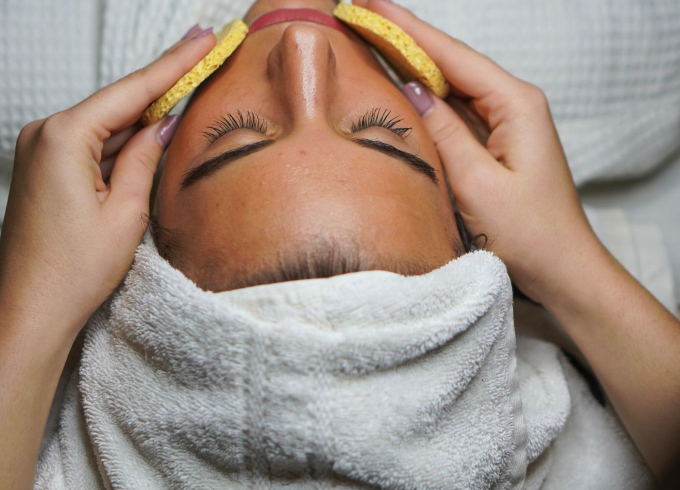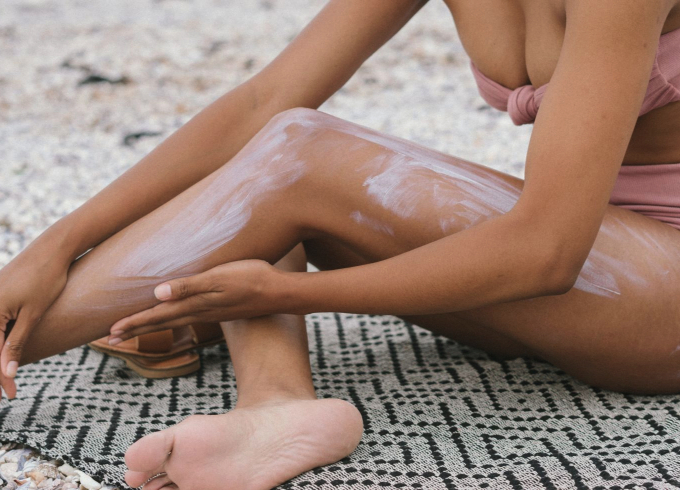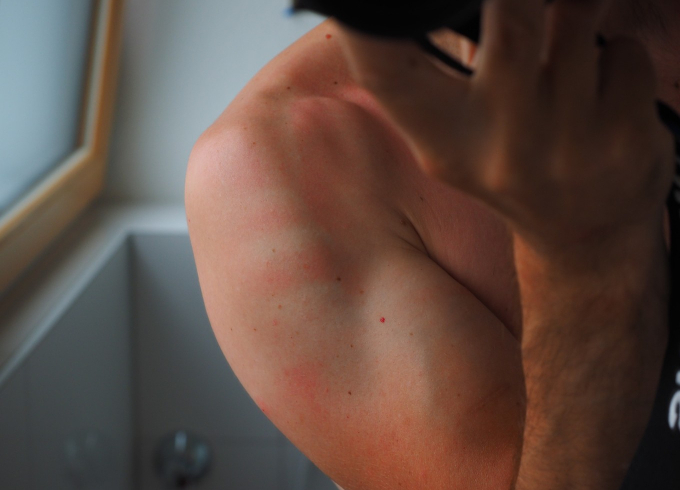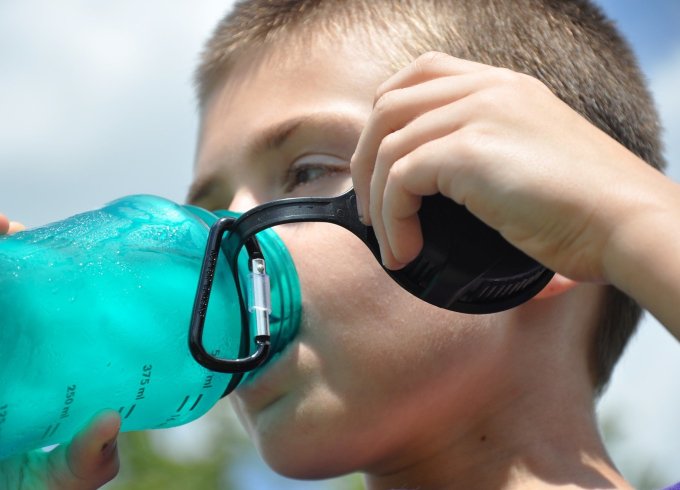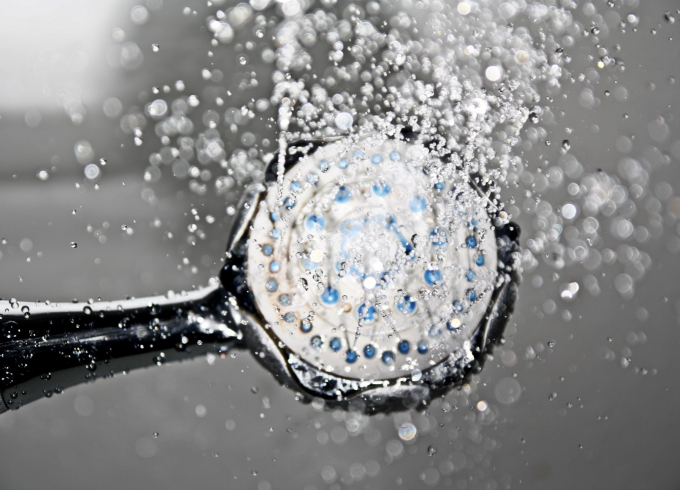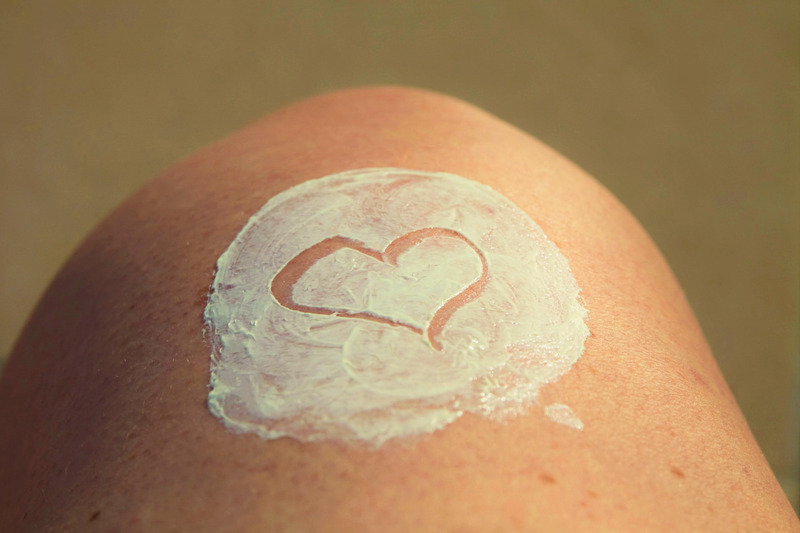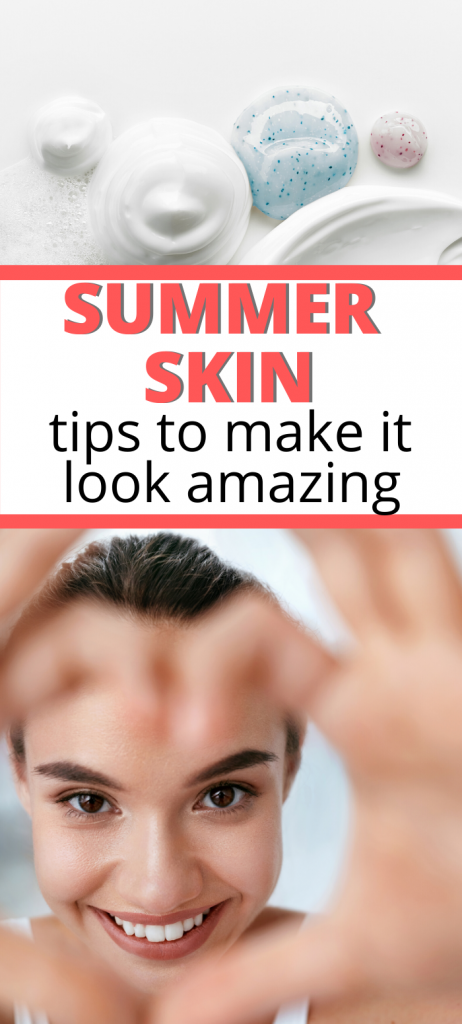Spring is right around the corner and summer is rapidly approaching. With summer comes long hours spent outside camping, hiking, and by the water.
Unfortunately, being outside, along with warm weather, especially humidity, can lead to oil and grime buildup on your face. This build-up leads to irritation, breakouts, and, overall dull faces. It’s also no secret how the sun’s harmful rays affect the health of your skin. To maintain that beautiful, healthy glow, here are a few summer skincare tips.
Switch Up Your Skincare Routine
Just like you change your wardrobe when the weather changes, you should mix up your skincare routine. You can see amazing results by simply substituting one or two skincare products in your daily routine. During the summer months, dermatologists recommend avoiding the three P’s found in many skin care products: petroleum, phthalates, and parabens. These ingredients can be harmful to the body all year; however, in the summer, they can cause dehydration and dryness, which is especially harmful.
Check your labels for ingredients that are from responsibly sourced, natural ingredients. For instance, products made from peppermint, lavender, and goat milk can support your skin health during the hot summer weather and they help prevent dryness and dehydration. Goat milk products are especially beneficial, and can really help to keep your skin nourished.
Get a Skincare Treatment
Treating yourself to a professional skincare treatment every three to four months will keep your skin looking bright and refreshed. There are many options to choose from such as facials, Dermaplanning, and Ultherapy. Facials are a great way to reset your skin after a cold, dry winter. The professional skincare treatment includes a cleanse, exfoliation, extraction, and antioxidant hydration by a licensed esthetician. Dermaplanning is a newly popular alternative. It is an exfoliating treatment that removes dead skin cells and fine facial hair. Lastly, Ultherapy is a treatment for tightening and lifting the skin on the face and neck. This process is the only FDA-approved, non-invasive procedure that will tighten and lift the skin.
Apply Plenty of Sunscreen
When it comes to skincare, it is crucial to be proactive. Applying sunscreen may seem like the most obvious tip when it comes to skincare during the summer months, but it is too often an afterthought. For your face, use a moisturizer with a Sun Protection Factor (SPF) of at least 25. SPF will protect your skin against the sun’s UVA and UVB rays. Sunscreen should be applied to your entire body, especially when spending time outside. Reapply sunscreen every two hours while sun exposure lasts. If you’re at a swimming pool or by a lake, be sure to reapply sunscreen after getting in the water, as well.
It is easy to forget certain areas while you are applying sunscreen. Vulnerable areas include the face, neck, ears, shoulders, back, knees, and tops of feet. Unfortunately, it is easy to forget about your lips and scalp. There are many lip balms with SPF that you can find in your nearest drug store. Although hair can protect your scalp to an extent, the skin exposed along your part and hairline can get burned. Sunscreen spray is the best option in keeping these exposed areas protected.
When applying makeup, put sunscreen or a moisturizer with an SPF on first. Sunscreen should also be applied before any other substances such as bug spray. Keep in mind that sunscreen does expire so be sure to check expiration dates at the beginning of the summer.
Treat Sunburns Immediately
Once you realize that you’re sunburnt, there are several ways to treat the sunburn and lessen the severity and pain. If you’re near water, you can hop in for several minutes to cool down the skin. Afterward, go inside to avoid further exposure. You can also cool off with a cool shower or bath. Moisturizing the skin while it is still wet will help prevent peeling; however, be careful to not use a lotion with petroleum or oil, which can make the burn worse. Botanicals and cooling gels can help soothe the burn.
Once the skin is cooled off, you can take a pain reliever, such as ibuprofen or aspirin, which will help decrease inflammation and prevent swelling.
Stay Hydrated
During the summer months, drinking plenty of water is essential in preventing dehydration and heat exhaustion, but it also benefits your skin. Drinking water will help keep your skin clear and tight. In addition to drinking water, facial mists can aid in keeping your skin hydrated and fresh throughout the whole day.
Sunburns can lead to dehydration, so it is important to drink extra fluids while treating a sunburn. Of course, water is essential to staying hydrated, but sports drinks can be helpful due to the electrolytes they provide.
Take Cool Showers
Cool showers and baths help treat sunburns, but have other benefits, as well. Cool showers keep your skin hydrated whereas hot showers tend to dry it out. Hot showers combined with the excessive sweat that comes with the summer heat is more likely to cause breakouts. Cool showers will help combat breakouts and keep your skin looking clear and fresh. Regularly exfoliating your skin will help prevent breakouts, as well.
Fuel Up on Antioxidants
Antioxidants reduce inflammation in the skin and repair any damage caused by the sun. Antioxidant-rich foods include cantaloupe, watermelon, berries, and spinach. You can also purchase serums that provide an antioxidant treatment. These serums correct dark spots and give your skin a youthful glow.
Get a Yearly Skin Exam
To maintain healthy skin, you should get a yearly skin exam by a dermatologist or other physician. Exams are important in maintaining your skin’s safety all year; not just during the summer months. In addition to yearly exams, you should do regular self-exams to ensure there are no changes to your skin. And if you do find something, you’ll want to have it looked at by medical professionals immediately.
Your skin is unique, and your skincare should be, too. Although these tips are a great place to start, you should consult a dermatologist to find the best practices for your skin.


